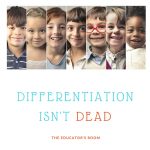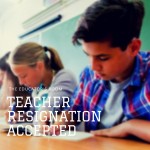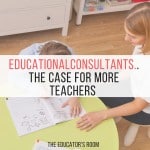What is the key to success in the classroom? Relationship building. Creating positive teacher-student connections may be the most important thing you can do to build a solid foundation in your classroom. Let’s dive into why.
Why Relationship Building in Classrooms is Essential
According to Edutopia, building strong relationships might be the first and most important step to set up learning success in your classroom. Edutopia states that “strong relationships increase student motivation and reduce behavioral issues, and they improve student achievement and classroom climate. “
Work on Classroom Relationships Continuously
Start Building Relationships on Day One
All teachers are familiar with the get to know you icebreakers commonly used at the start of the school year. They are fun and help create a classroom community, but we as teachers shouldn’t stop there. Relationship building should be continuous.
I am no stranger to icebreakers, as I have started every school year by using them in some form. I always had the intention to use them for relationship building. One year I set up the games every day for three weeks straight. By week two or three, I had burned myself out. These three weeks were packed with activities, so I had to get caught up with the curriculum fast. I got lost in the day-to-day routine of the class curriculum.
Eventually, I noticed that although the year started on a good note, as the year went on, the class community started to feel in disarray as I hadn’t gotten to know students as well as I would have liked. Spending only a couple of weeks going through the motions of the get- to- know you activities is never enough to foster connections with students.
Be Intentional in Your Interactions
In my first year teaching, I intentionally built relationships with my students and really got to know them as individuals. First, I allowed more time to have fun in the classroom and gave students (and myself) more grace when mistakes were made. Second, I created more student-led learning opportunities. Not until I left the school did I learn the impact that my intentional relationship building had on my students.
When I was finished with the school year and had left, several teachers reached out to me saying that my students missed me and kept asking for me even after my replacement had taken my place. They had missed me (and I missed them too) because we had formed real connections. So that year, I was intentional in getting to know my students, and I allowed them to know me.
There are many ways to create positive relationships in the classroom; I would like to share my top four:
- Learn every student’s name as fast as you can.
Calling a student by their name is a quick way to show them that you see them as individuals, not just another name on your roll call. Students also appreciate it if you call them by their nickname if they have one. Also, make sure to pronounce their name correctly. If you follow these tips regarding names, you will be on the first step to creating a relationship with them. You should also have students learn each other’s names just as you are learning their names. Peers need to build relationships together as well.
- Get to know your students.
Knowing a student’s first and last name does not mean you have formed a relationship with them. Please get to know your students beyond their names. Ask their parents, previous teachers, and the students themselves questions to get to know them. Find out what their interests are, their strengths, and their weaknesses. Please pay attention to how students interact with you and with their peers. You can learn a lot about someone just through observation. Attend school events and participate in your school community. Share things about you and your life with your students.
- Teach active listening skills in the classroom.
Active listening is the highest level of thinking. Active listening is listening without judgment or interruption, intending to understand what the speaker is saying. A fast way to build trust would be to teach and practice active listening skills in your classroom. When students feel heard and understood, they are more likely to trust their peers, you (their teacher), and healthy relationships will form naturally.
- Give students a voice in the classroom setup.
Students appreciate partnering with you to set up their classroom environment. Allow students to have a voice in the classroom with how the environment is set up as the teacher decides how much of a say students have. For example, you could make it as simple as asking students to share what posters they would like on the walls or as involved as having students brainstorm what they feel the classroom expectations should be. As the teacher, you can empower students by giving them a say in the classroom environment.
In summary, four helpful ways to build relationships in the classroom are:
- Learn names. You as the teacher should know every student’s name and students should know each other’s name.
- Get to know your students beyond their name.
- Practice and teach active listening.
- Give students a voice in the classroom setup.
If you start using these 4 relationship-building strategies in your classroom, you will see success!






